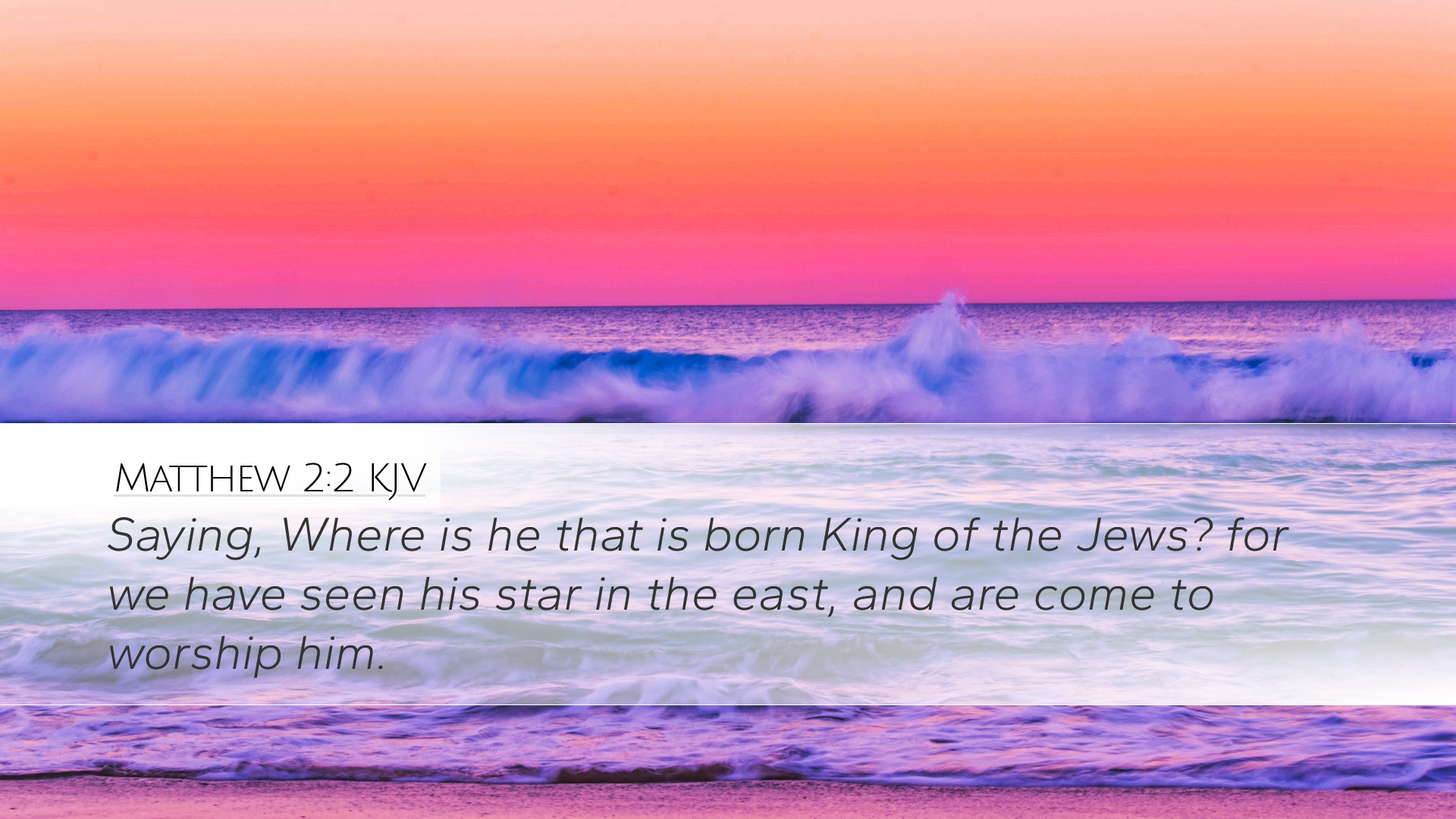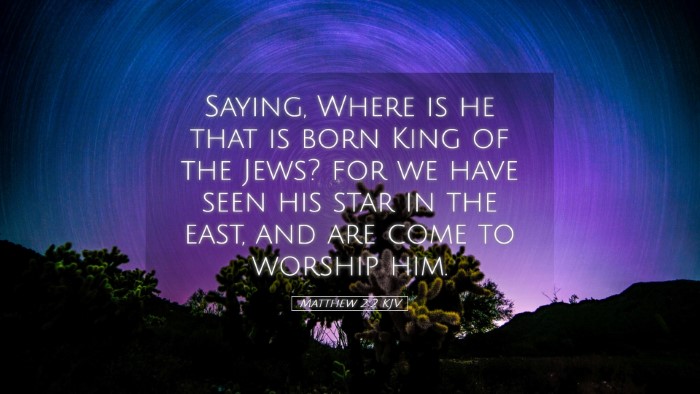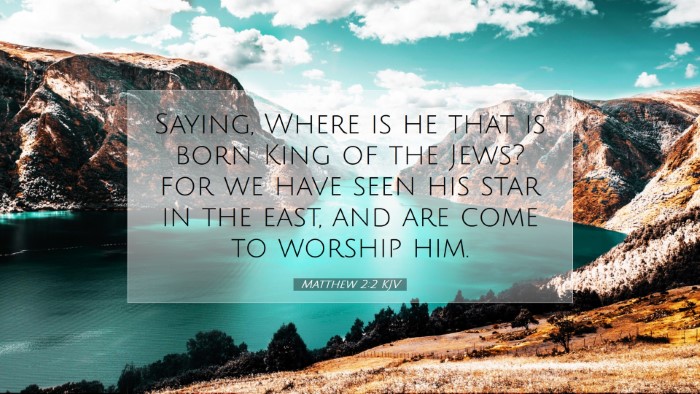Commentary on Matthew 2:2
In this verse, we encounter the Magi, also known as the Wise Men, coming from the East. They arrive in Jerusalem, seeking the one who has been born "King of the Jews." This inquiry prompts a significant reflection on the implications of Christ's birth and His kingship, which resonates throughout the scriptural narrative and ends with profound theological insights.
Context of the Verse
The narrative surrounding Matthew 2:2 takes place shortly after the birth of Jesus in Bethlehem. This context is crucial as it highlights the significance of His birth not only for Israel but for the entire world. The Magi's journey illustrates a fulfillment of Old Testament prophecies and emphasizes the universal appeal of Christ.
The Arrival of the Magi
Matthew Henry points out that the Magi represent a group of gentiles who seek truth beyond their own cultural and religious frameworks. Their journey from distant lands underscores God's plan to reveal Himself to all nations through Christ.
Their Inquiry and Its Theological Significance
Albert Barnes emphasizes the phrase "we have seen his star in the east." This recognition of a celestial sign reflects the Magi's strong belief in divine guidance. Furthermore, it indicates that God can communicate His purposes through creation, inviting those who are diligent in seeking truth to discover His revelation in Christ.
The Title "King of the Jews"
The title "King of the Jews" carries immense significance, as it encapsulates Jesus' identity and mission. Adam Clarke notes that this designation unites two important themes: Jesus as the anticipated Messiah and His divine kingship. The Magi's recognition of Jesus' royal status aligns with Old Testament expectations of the Messiah, such as those found in Isaiah 9:6-7 and Micah 5:2, which prophesy a ruler from Bethlehem.
Theological Implications
- Universalism of Christ's Message
The visit of the Magi symbolizes the universal implications of Christ's birth. His kingship is not confined to the Jews alone but extends to all of humanity, thus emphasizing the global mission of the Gospel.
- God's Sovereignty and Guidance
The Magi's journey is a testament to God's sovereignty over the course of human history. Their ability to recognize the star and its significance reveals the divine orchestration leading to Christ's revelation.
- Faith and Revelation
As the Magi acted upon what they believed to be true, they exemplify the necessity of faith responding to divine revelation. Their quest encourages believers to seek deeper understanding and connection with God.
Application for Pastors and Theologians
This verse offers rich material for sermons and theological discourse:
- Evangelism and Missions
Pastors might draw from the Magi's journey to emphasize the importance of outreach and missions, challenging congregations to seek and engage those outside of their religious communities.
- Christian Discipleship
The Magi's journey serves as an analogy for the Christian life—a continual quest for Christ, informed by Scripture and guided by the Holy Spirit.
- Understanding Christ's Kingship
Believers are encouraged to evaluate their understanding of Christ's lordship in their lives, urging a response of worship and submission to His authority as 'King of the Jews' and 'King of Kings.'
Final Thoughts
Matthew 2:2 is more than a historical account; it encapsulates profound theological truths concerning the identity of Christ, the nature of God's revelation, and the mission of the Church. As we meditate on this verse, we are invited to approach Christ with the same sense of wonder and reverence as the Magi, acknowledging Him as the rightful King whose reign extends to all nations and peoples.


